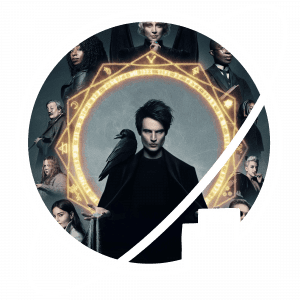- Novel written by Mary Shelley
- Published 1 January 1818
- Standalone


Listened to the audiobook with Simon Vance, loved his narration.
The first showing of Guillermo del Toro’s new Frankenstein movie at the Venice International Film Festival is coming up, so I figured it would be interesting to reread the original book to best prepare for the inevitable watch parties. Turns out the release on Netflix is only in the fall though. Unfortunately.
So back to the book. There a multiple ways to review a book like Frankenstein. If we look at it from the perspective of what Frankenstein did for the genre – and what it meant in 1818 – it is very difficult to overstate its importance. It is already incredible that a teenage girl could write this, but now consider she wrote it in the 1810s! 5/5.
It might be different if we look at it from the perspective of the 2020s. We know what Frankenstein meant for science fiction, but what if we look at it as a piece of entertainment rather than a piece of history?
I think there are a lot of elements to the story that wouldn’t fly in a modern publication. There are quite a few ways in which the story is simply old fashioned. For example, aside from Victor Frankenstein, the characters are pretty underdeveloped, especially the female ones; and the prose is very dramatic (to a level which is sometimes more funny than emotional).
In addition, there are a couple of nit-picky criticisms that I feel might have been resolved with some editorial l input in a revised version. For example, while the reader will understand that for the story to work the monster needs to learn basically everything somewhere, I still think it is a fair criticism that the way it actually happened was very convenient. And Frankenstein does a lot of thinking, but it just never seems to occur to him to tell anyone what is up, or to take action to prevent the monster from getting its way. I realise its not that type of book, of course, but I feel a modern version would have found ways to make it make more practical sense.
On the other hand, there is more than enough that carries over the 200 years since the book was written. The core message – of a person being driven to do unspeakable things because of unfair rejection by fellow humans, of unfair rejection by fellow humans because of immutable characteristics like appearance – is as relevant now as it was in 1818. And sure, the story is old and the prose is a little melodramatic, but that is also fun! It makes for a very atmospheric tale. And finally: it has a frame narrative, so that means I’m sold.
So overall: I enjoyed Frankenstein. I’m just a sucker for the classics. If I’m honest, I probably mostly liked it for the history attached to it. But that doesn’t mean it’s not worth reading for its own sake.













